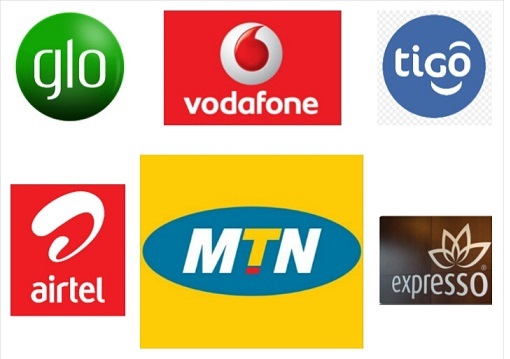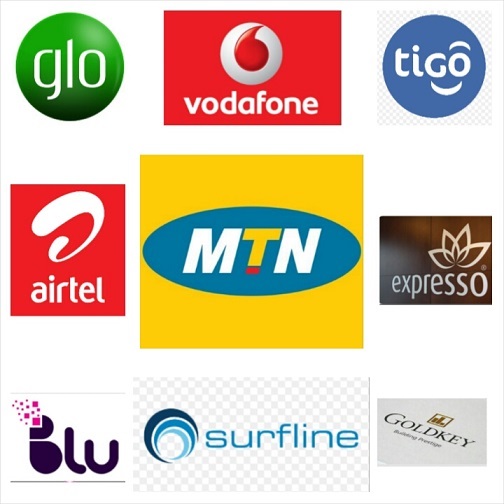
The latest mobile cellular subscriber base figures for the period ending August 2014, indicate that mobile data subscribers in the country now account for almost 50% of total number of mobile phone lines and over 55% of Ghana’s population.
As at the end of August 2014, the total mobile subscriptions in the country was 29,531,488, while total data subs also reached 14,615,048, which is 49.5% of the total.
Meanwhile, at August ending, the country’s population was estimated at 26,566,240 so the number of mobile data customers constituted 55.01% of the population.
The figures, as published by the National Communication Authority would show that mobile data penetration has been rising steadily from 48.84% in February 2014 to the current level. It experienced a dip from 54.09% to 50.85% between April and May. Then from July to August it fell again marginally from 55.71% to its current 55.01%.
In terms of real figures, mobile data customers fell from 14,254,407 in April to 13,429,399, then rose to through June and July to 14,771,074 before falling marginally to 14,615,048 in August.
MTN
Market leader MTN’s data subs level towers high above all else at 7,763,273 data subs, representing 53.12% of the total data market share, and 29.2% of Ghana’s estimated population as of August ending.
This means MTN’s data customers are more than the data customers of all the five other telcos combined. But it is important to note that the figures does not include customers of Surfline, which launched in September.
Meanwhile, MTN’s total number of customers at the end of the same period was 13,541,961, so its data customers constituted 57.3% of its total customer base. But the August figure is not the highest for MTN. Data customers of MTN was highest in April 2014. The figure was 7,986,231, which is 222,958 more than the August figure.
MTN has been promoting affordable smartphones and affordable data packages on its network, and the telco attributes the consistent increase in data customers and data revenue to that. Indeed, in the half years report of the MTN Group, MTN Ghana recorded 180% increase in data revenue and data contributed 17.6% to the total revenue of the company.
Vodafone
Vodafone also finished August 2014 with 2,067,705 data customers representing 14.15% of the total data market share, and 7.8% of Ghana’s population. Vodafone’s data customers also constitute about 31% of its 6,688,783 total subs base.
Data customers on Vodafone’s network peaked in June 2014. It stood at 2,542,931 before dropping to the current level.
Vodafone has for a while ridden on the back of its Red package, which offer various bundles that included data, voice and SMS packages all in one. The Red packages were touted as the main driver of data customer uptake for Vodafone, but the latest figures do not uphold that claim any longer.
Vodafone has not been promoting any affordable smartphones aggressively on its network like the market leader MTN does. Weeks ago, it launch the Alcatel Onetouch Alpha Idol, which is selling at over GHC1,300, but with a data package from Vodafone. It followed that up with an even more expensive handset, the iPhone 6, which is estimated at about GHC5,000.
This runs contrary to what the GSMA Intelligence recent report said about what currently drives data customer uptake and consumption, i.e. low end smartphones and affordable data packages.
Vodafone has been touted as elitist but it insists it is a “premium” network focusing more on enterprise and high-end customers than the low end.
Tigo
Tigo’s data customers have been increasing throughout the year. Between July and August, it increased by 56,248, and now boasts of 2,097,558 data subs, representing 14.4% data market share.
Its data customers constitute 52.2% of its 4,015,946 subs base as of August ending. The figure also represents 7.9% of Ghana’s population.
So even though second place Vodafone has more customers than third place Tigo, the latter’s data subs are more than that of the former.
Until Glo recently introduced a 24-hour bundle for 25Gp, Tigo had the most affordable data packages in the country. It used to have three unlimited data packages. But that was when it did not have a good spread of 3G cell sites across country. Now Tigo is close to finishing the installation of 3G cell sites in all district capitals and it is already increasing data subs consistently monthly.
Tigo also does a number of affordable smart devices in collaboration with some dealers like Tecno, Alcatel Onetouch and others.
Airtel
Airtel gained 36,897 new data customers between July and August to reach 2,066,155 data subs, representing 14.14% data market share, and 7.8% of Ghana’s population.
It data customers also represents 55% of its total customer base of 3,756,547 as of August ending this year.
Airtel was the first to start advertising a 3.75G network, promising a robust and reliable network support for great data experience. That seem to have worked for them and now the company has one of the highest data subs to general subscriber base ratios in the country; second to only MTN.
Glo
On the data front, Glo also made gains. It added on 86,227 subs between July and August, and finished the period with 584,222 data subs, representing about 4% of total data market share.
Glo’s data subs constitute 2.2% of Ghana’s population and 41.6% of its number of customers, which stood at 1,404,426 as of August 2014.
Glo had, what some of its customers described as, one of the most complex bundles on the market. It was called the Glo Bounce, and it offered packages that customer claimed were difficult to understand because the tariff on those bundles different at different time of day, week and for different reasons.
There were different charges at night, early mornings, peak hours, and on weekends. And sometimes what the customers paid depends on how much he/she spent over a given period of time.
Pundits have said the packages did not yield much result for Glo because of its complex nature, even though it may have been one of the most affordable bundles on the market.
But recently, Glo launched three new daily packages, offering a 24-hour bundle for as low as 25Gp, which is currently the most affordable on the market. But Glo is not offering any affordable handsets on its network.
Expresso
Meanwhile, Expresso, which has been losing customers consistently for more than a year, made a marginal turn around, increasing voice subs from 122,356 in July to 123,825 in August 2014. But its data subs dropped by more than a thousand to 36,135.
The figure represents 29.2% of its total subs base, 0.14% of the population and 0.25% of its own total data market share.
Expresso had one of the dongles, CLIQ, which arguably gave the best mobile data experience in the country. But now user say they would rather do data on another network than on Expresso with the CLIQ modem.
Meanwhile, mobile data penetration promises to increase because he first 4G LTE network has started operations and the second one is gearing up to launch this month.
A third and possibly a fourth licensed entities would launch much later.










